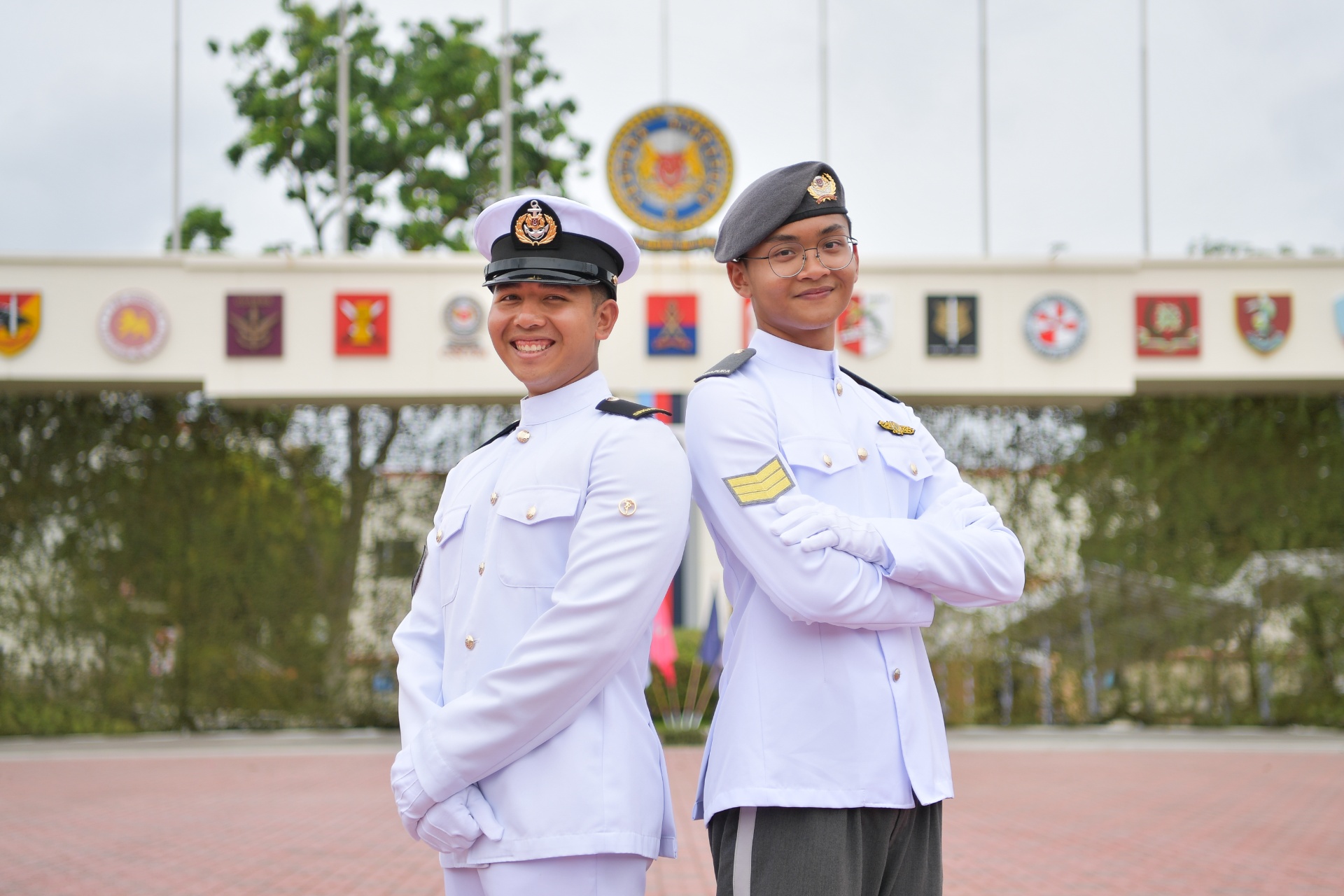PEOPLE
She's a super mum
08 Mar 2023
MAJ Teoh Pei Mei shares her journey in being a mum and caregiver to a child who has a genetic disorder, as well as her career in the Air Force.
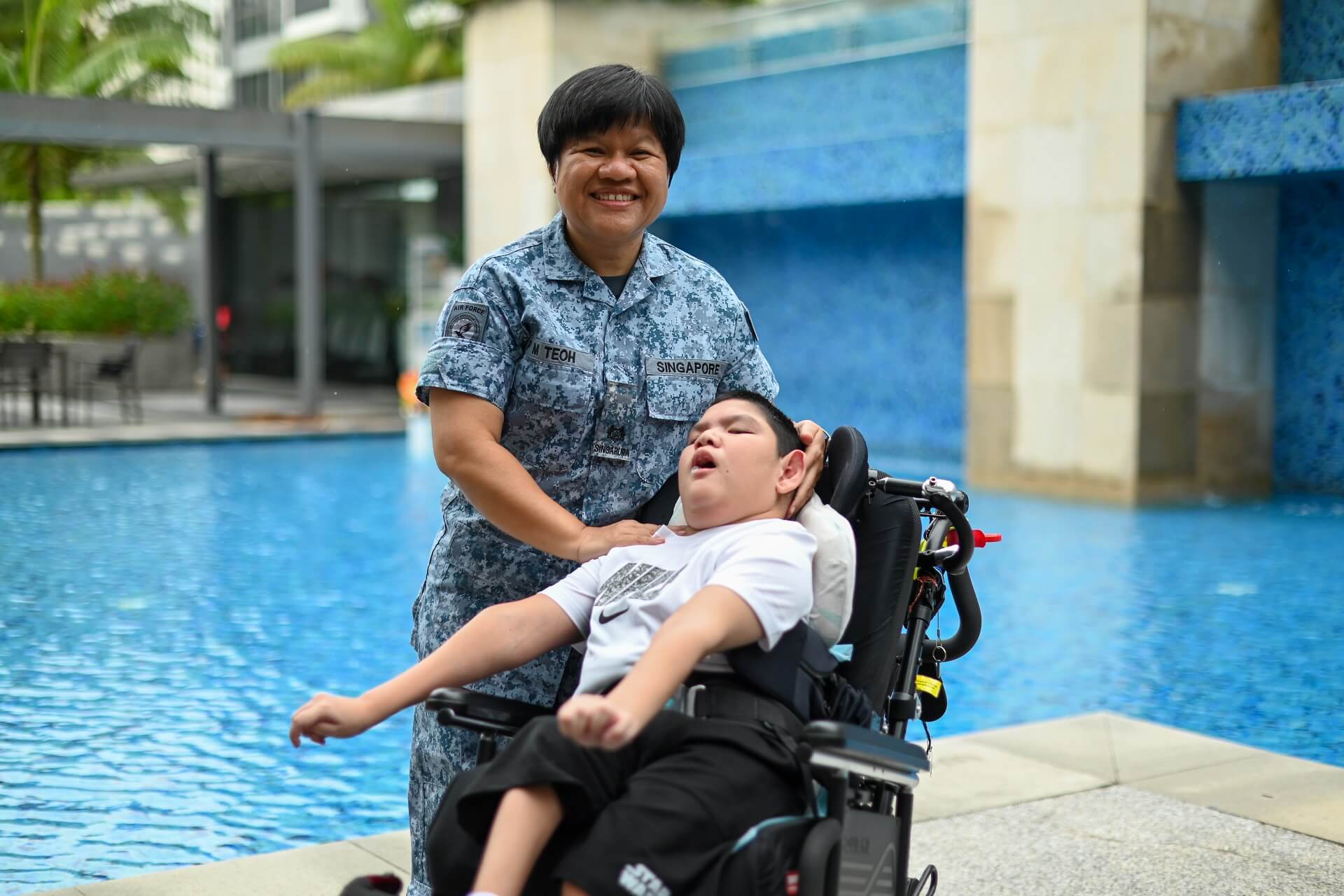
Back in 2008, Major (MAJ) Teoh learnt that her only son, Ryan, was suffering from a rare genetic disorder and might not live past childhood. She immediately put her career in the Republic of Singapore Air Force (RSAF) on hold and took no-pay leave to be his primary caregiver.
Today, Ryan is a happy 15-year-old who loves to manja (act clingy and want attention) his parents. MAJ Teoh, 49, returned to work and is now the Head of the Personnel Management Branch in Headquarters Air Power Generation Command's (HQ APGC's) Human Resource Management Centre.
She believes it's important for caregivers to take care of themselves and find focus areas beyond caregiving, so that they don't burn out.
Find out how this Super Mummy juggles being a servicewoman and parent!
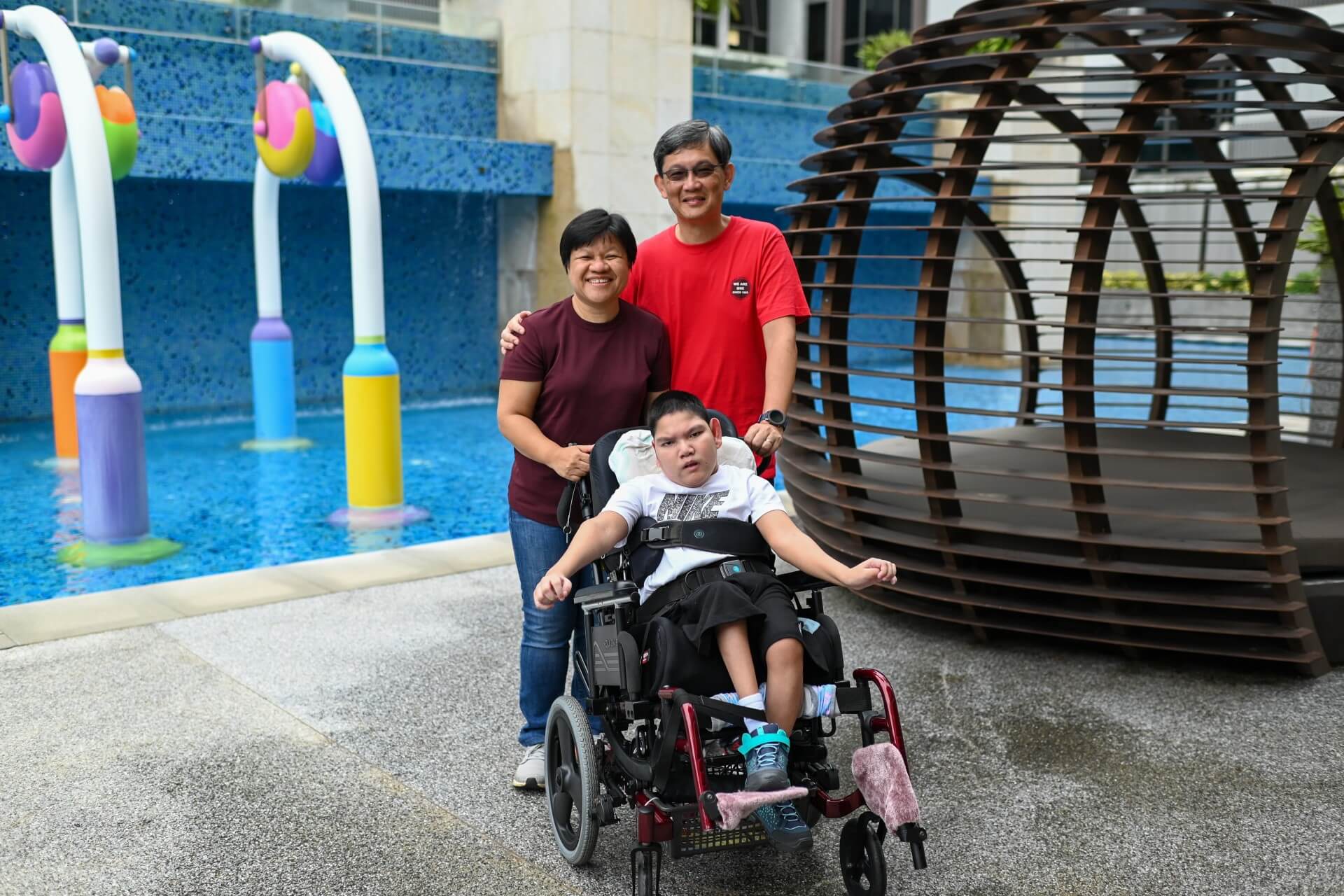
Hi MAJ Teoh! Tell us more about yourself!
MAJ Teoh: During school, I was in the National Police Cadet Corps. I enjoyed the regimentation of uniformed groups, so when I was in university, I decided that the uniformed service would be a good career choice. I joined the RSAF in 1996 as an Air Executive Officer.
I met my husband in 1999 while we were on a detachment in France – I was seeing to the detachment's manpower matters while he was undergoing flight training. We got married in 2006, and Ryan was born on 20 Aug 2008.
My husband and I went through a long journey to get pregnant, and Ryan was the baby we were longing for.
I had a normal delivery with him. But three or four days after her was born, we noticed that he was very difficult to rouse. Months later, things did not get better – he kept arching his back.
We eventually found out that he has sulfite oxidase deficiency, a rare genetic disorder that causes progressive brain damage and global developmental delays, as well as multiple disabilities. He is completely dependent on a caregiver for all his needs. He is also non-verbal.
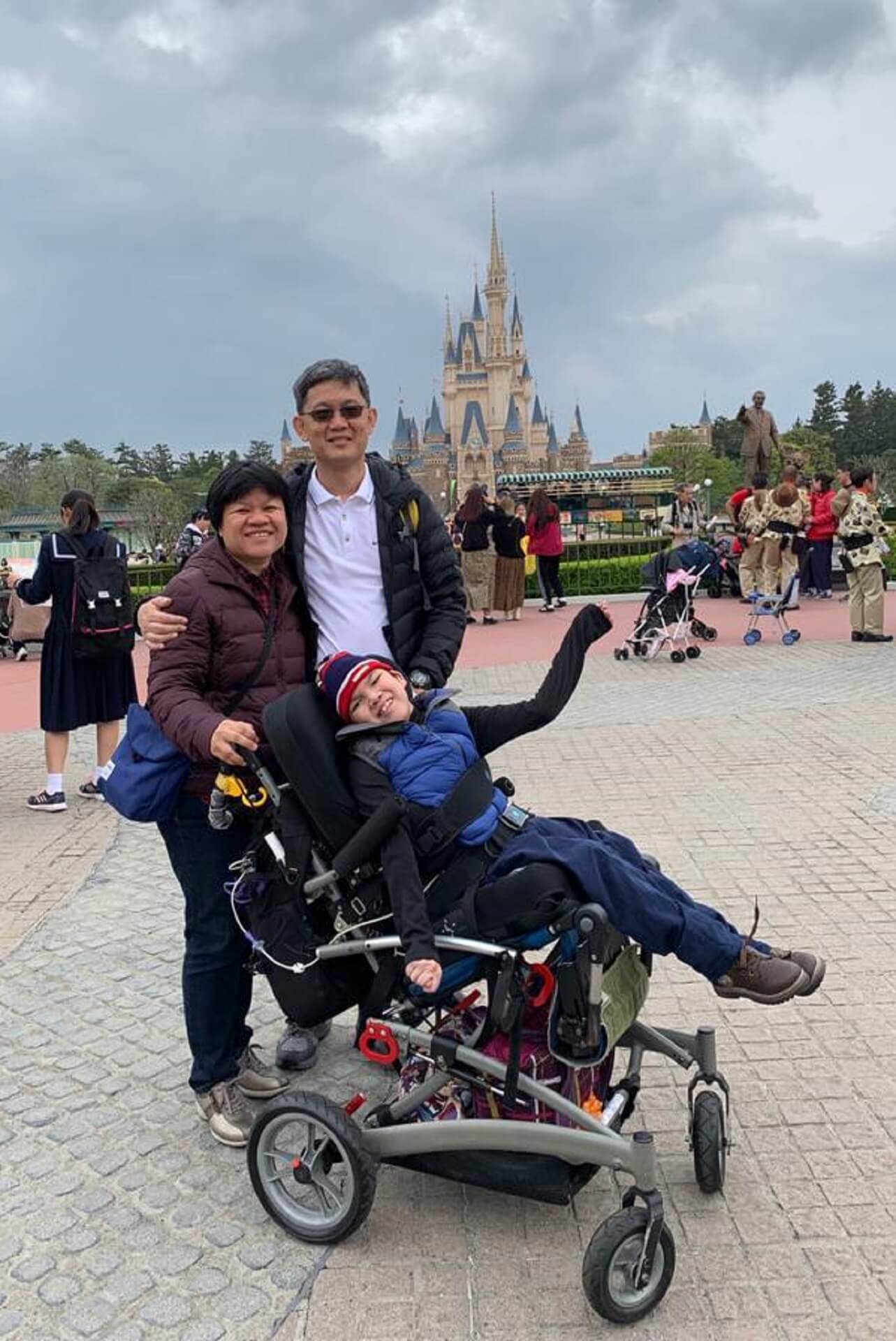
How did you react to Ryan's diagnosis?
MAJ Teoh: I still remember that we got his diagnosis on Boxing Day. At that point, we were shocked and devastated. The doctors told us the prognosis was very bad, and most children born with it do not live beyond early childhood.
We also learnt that the first two years were crucial to his intellectual development, and that we should do more to stimulate him. I immediately took no-pay leave to take care of him. I took him to his many medical appointments – he had one almost every month.
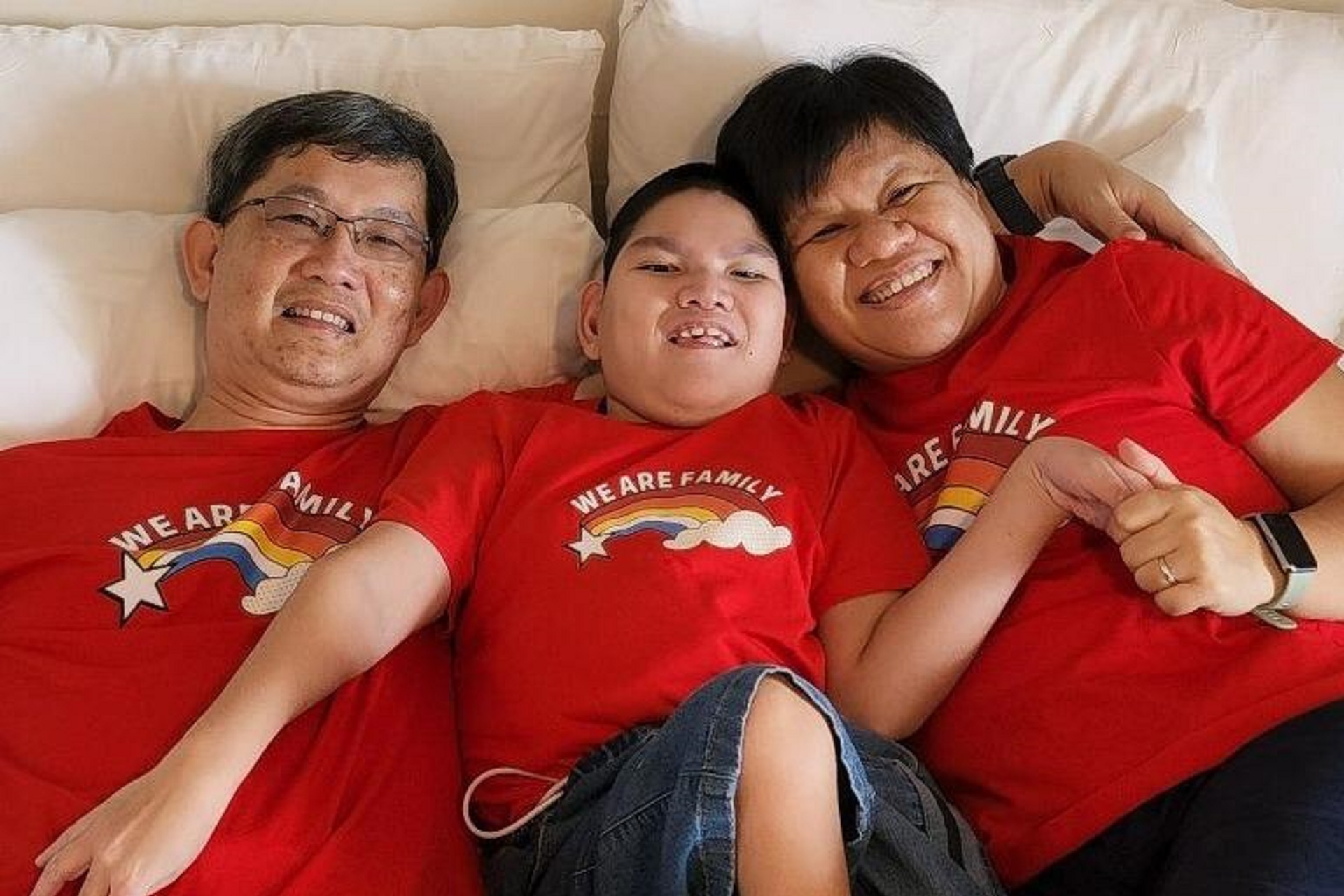
What adjustments did you have to make?
MAJ Teoh: I was on no-pay leave for almost two years. Then I realised that I shouldn't be putting my focus solely on Ryan; it can be very draining to be a caregiver. So when he was more stable, I went back to work, first on a part-time basis and then later, I increased this to 80%.
I'm very thankful that the organisation has always been very understanding. For instance, when I returned to work, I requested a posting at Paya Lebar Air Base in order to be nearer to my mother, who was taking care of Ryan. This way, I would be able to react faster to any emergencies at home. And the organisation was kind enough to accede to my request.
At that time, my husband was the Commanding Officer of 121 Squadron, which operates the Fokker 50 Utility Aircraft, so it was more difficult for him to drop his work to tend to any emergencies.
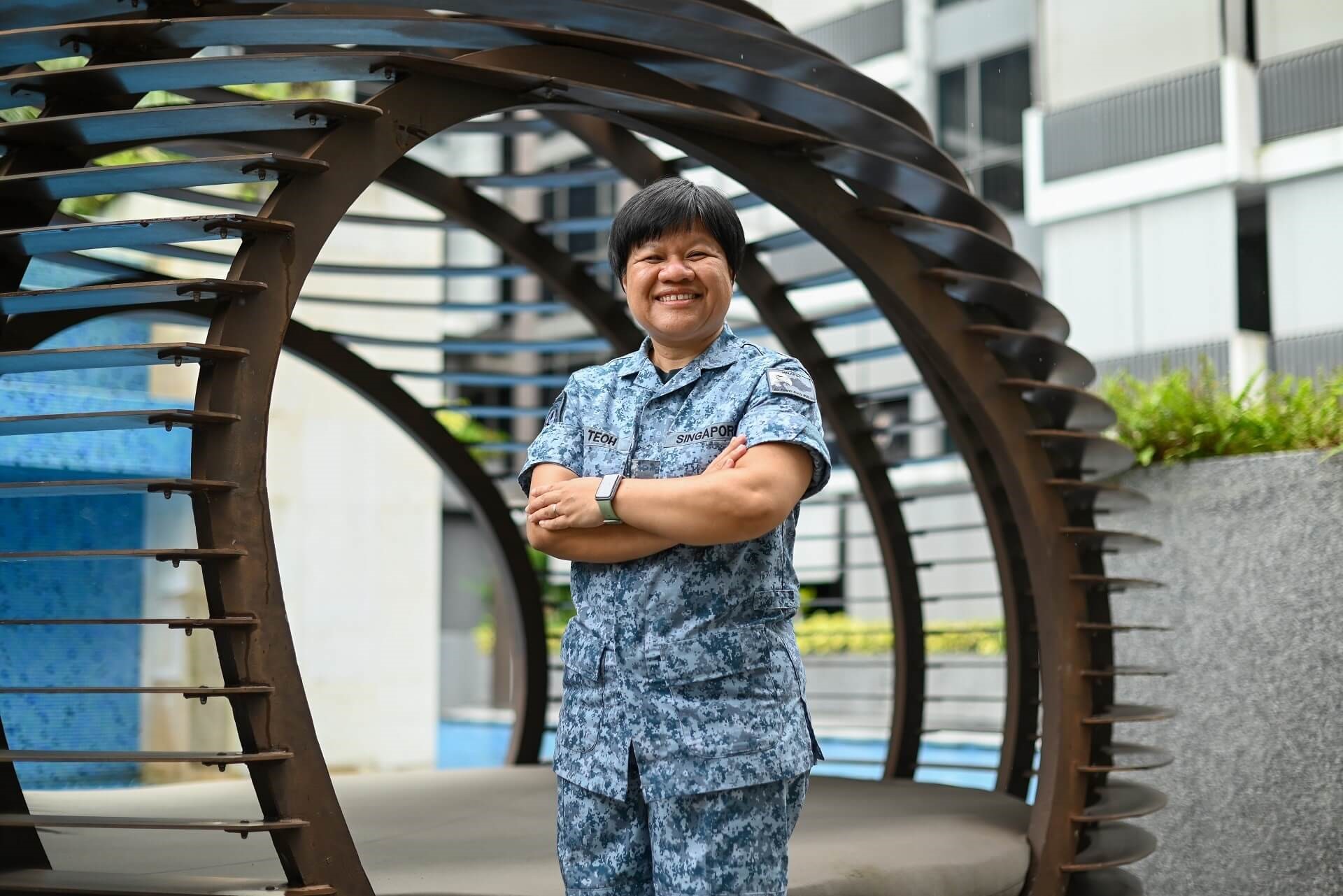
Were there any especially difficult moments?
MAJ Teoh: Ryan had more health issues in the early days. He often caught pneumonia or bronchitis that resulted in long hospital stays. My husband and I would have our uniforms – his flight suit and my No. 4 – hung in his ward. I usually took the night shift to be with him, then go straight to work at 8am.
How did I find the energy? Actually, I also don't know! (laughs) But you just don't think so much (in those situations). I just did what I needed to do.
We also nearly lost him when he was about 10. There were problems with his liver and his condition took a turn for the worst. In fact, the doctor told my husband that he had just months to live, although he never told me about this. I didn't leave his bedside for a whole week.
My boss was very understanding and allowed to take as much leave as I needed. My colleagues also supported me.
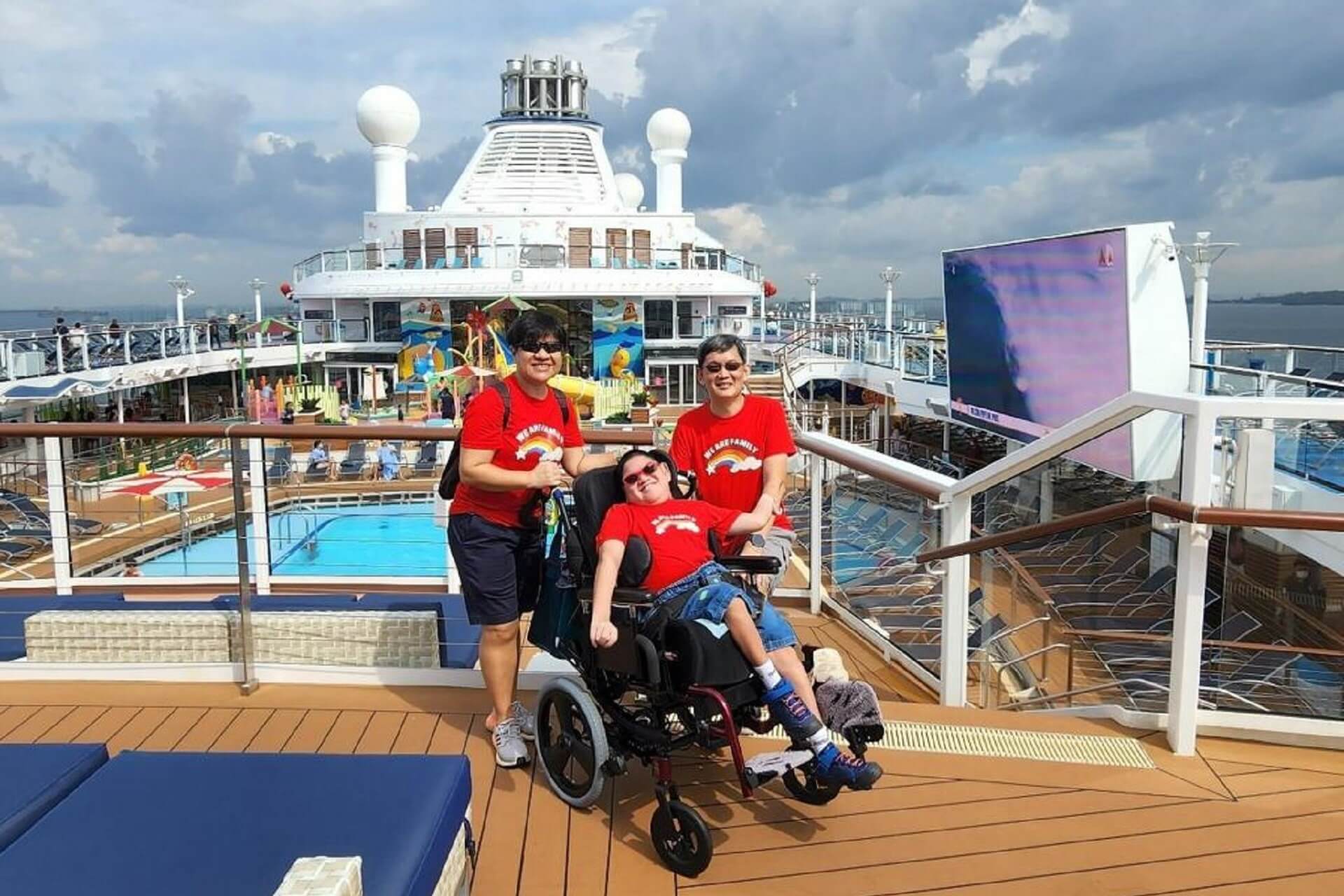
Is there anything you would have changed?
MAJ Teoh: Of course, when I first signed on, I did want to climb the career ladder. But Ryan's condition made me re-evaluate (my priorities). And after much thought, I know that if I had chosen to take on higher appointments, it wouldn't be fair to my colleagues who would have to cover for me when I ran off to see to Ryan.
Being where I am now, I can continue with my career while caring for my son. I did this for my family and my son. I don't have any regrets.
That said, I'm very lucky to have a capable helper, Suwarti, who has been taking care of Ryan for almost 13 years. My parents and in-laws also support us with things like driving him to and from school.
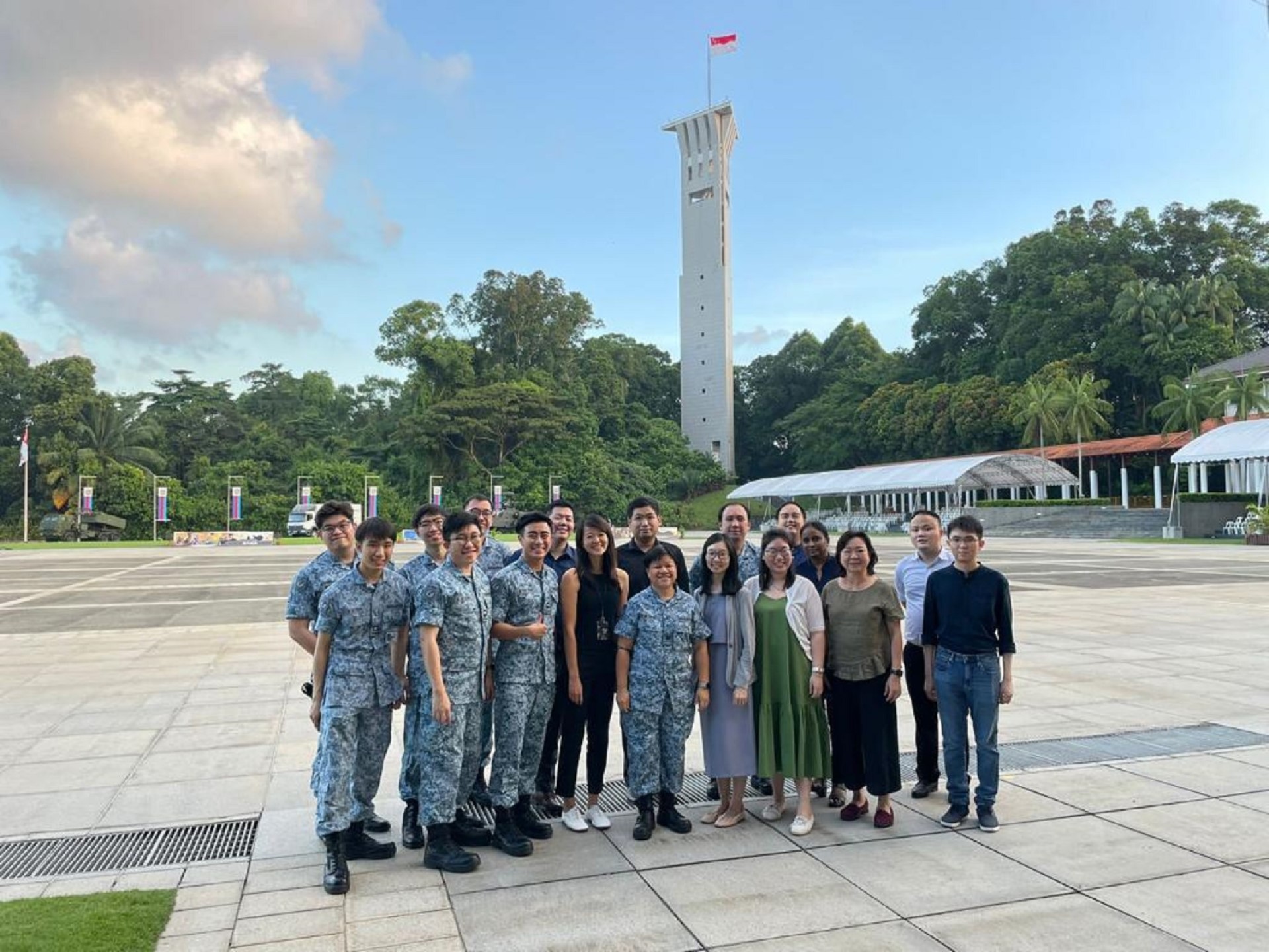
Tell us more about your job in HQ APGC!
MAJ Teoh: I'm the Head of the Personnel Management Branch in the Human Resource Management Centre (HRMC). I manage a team of over 30 staff and we handle the human resource matters for all the Regulars and Full-time National Servicemen (NSFs) in APGC. This includes seeing to their posting, promotions, ranking and deployments.
We also help in organising events like the SAF Day Parade. I was in charge of ushering in 2013 and 2015. Last year, which was the first time we had a full-scale parade after the COVID-19 pandemic, I took care of the invitations. My team and I often had to stay until 8 or 9 at night sending out the invitations, collating the responses and preparing for the actual day.
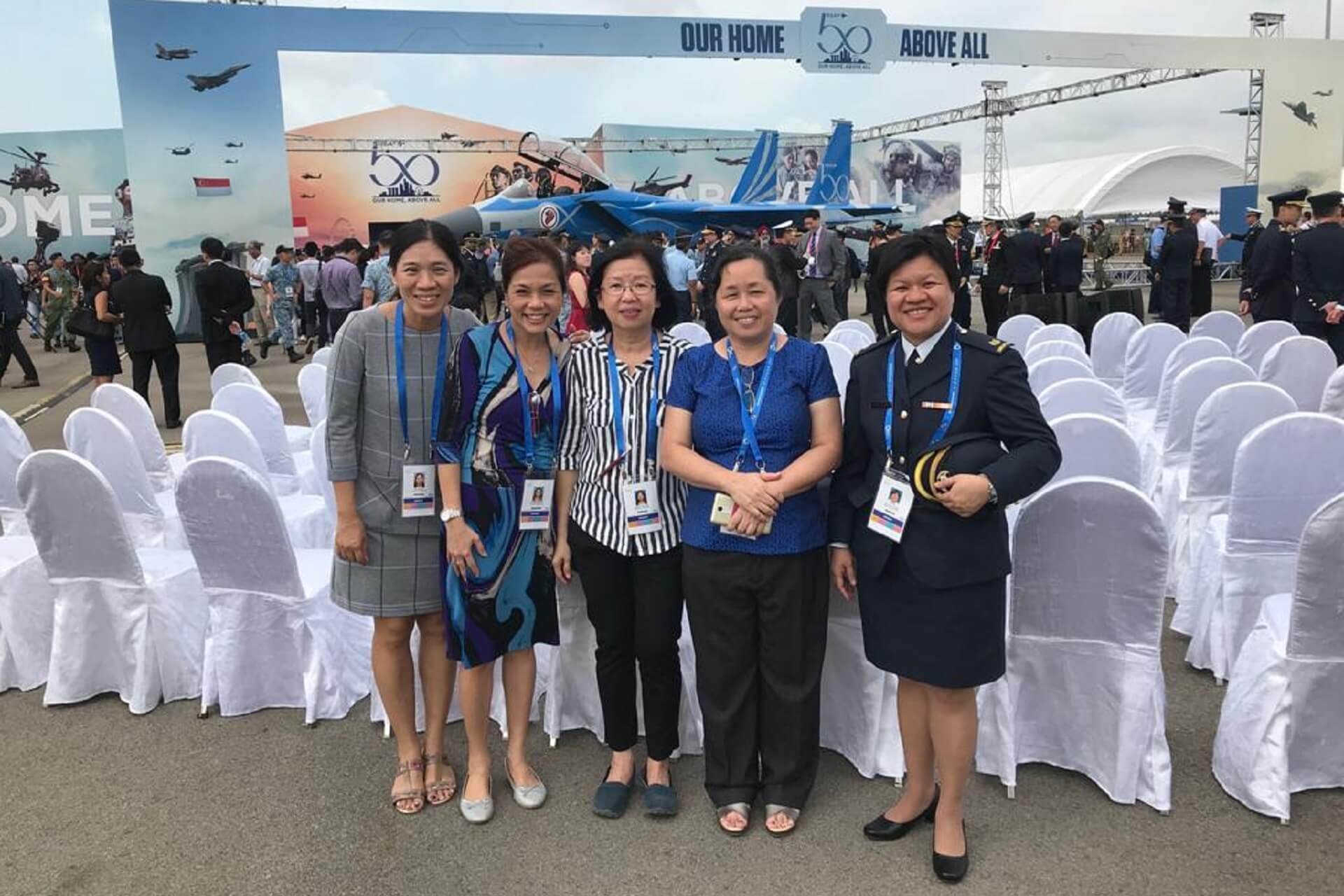
Have your colleagues met Ryan?
MAJ Teoh: Yes, I often bring Ryan along to my office's family functions, such as Open Houses. I always take him out like a normal kid because my belief is that if I keep him at home, I would have to stay at home too, and that would cause me to become unhappy and resentful. I know that if I keep myself happy, he will also be happy.
Another reason I try to introduce Ryan to my colleagues is that I've come across many NSFs who suffer from conditions like depression and anxiety, perhaps due to problems when they were younger or at home.
I hope that after meeting Ryan, they will appreciate the good in their life. Hopefully my story can inspire them to look past the negative and see that they are actually very fortunate. And some of them do take an interest in Ryan when they see him and will ask me more about his situation.
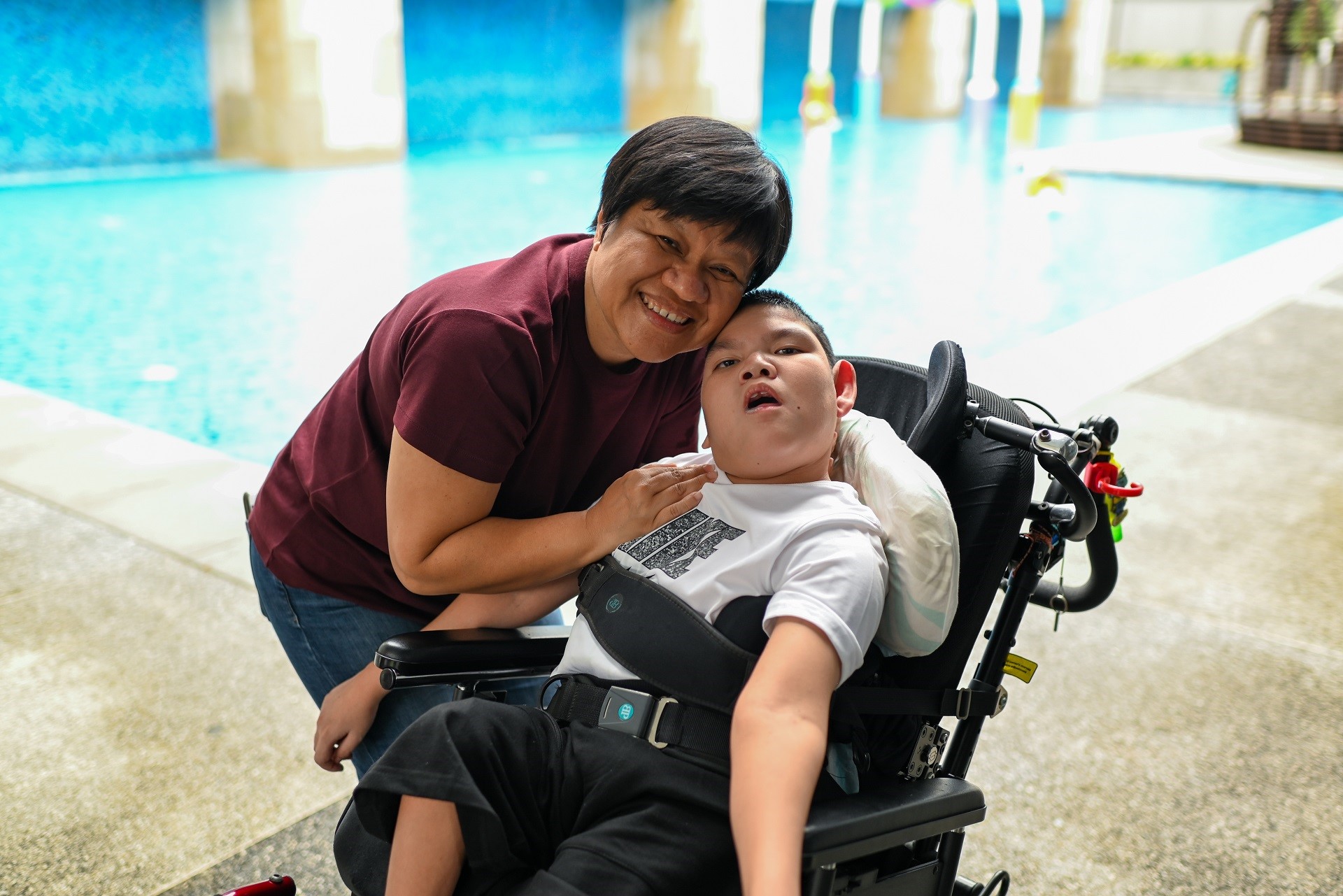
What's the best thing about being Ryan's mum?
MAJ Teoh: His smile is very infectious. Seeing his smile makes me forget all my unhappiness. His facial expression is very rich. For example, when we ask him if he wants something, he will smile to tell us he does. Or if my husband and I travel without him, he will refuse to talk to us and give us a look when we video-call.
When I come home and play with him, and he gives me his manja face, it makes me very happy. What my husband and I want is just for him to be comfortable and happy.
ALSO READ IN PEOPLE
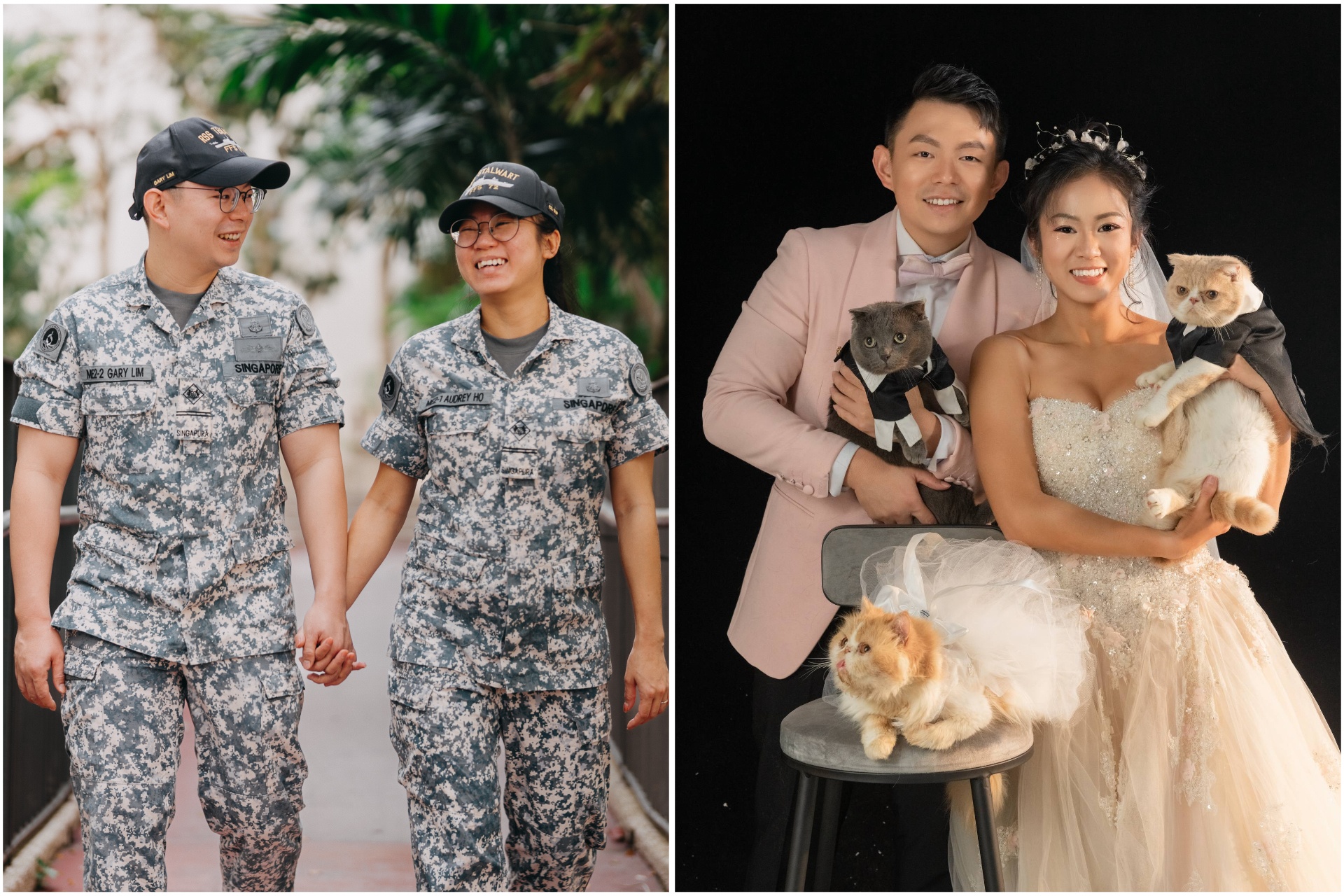
When two hearts set sail together
13 Feb 2026
Naval engineers ME2 Gary Lim and ME2 Audrey Ho share how they navigate love, military service, and (soon) parenthood.
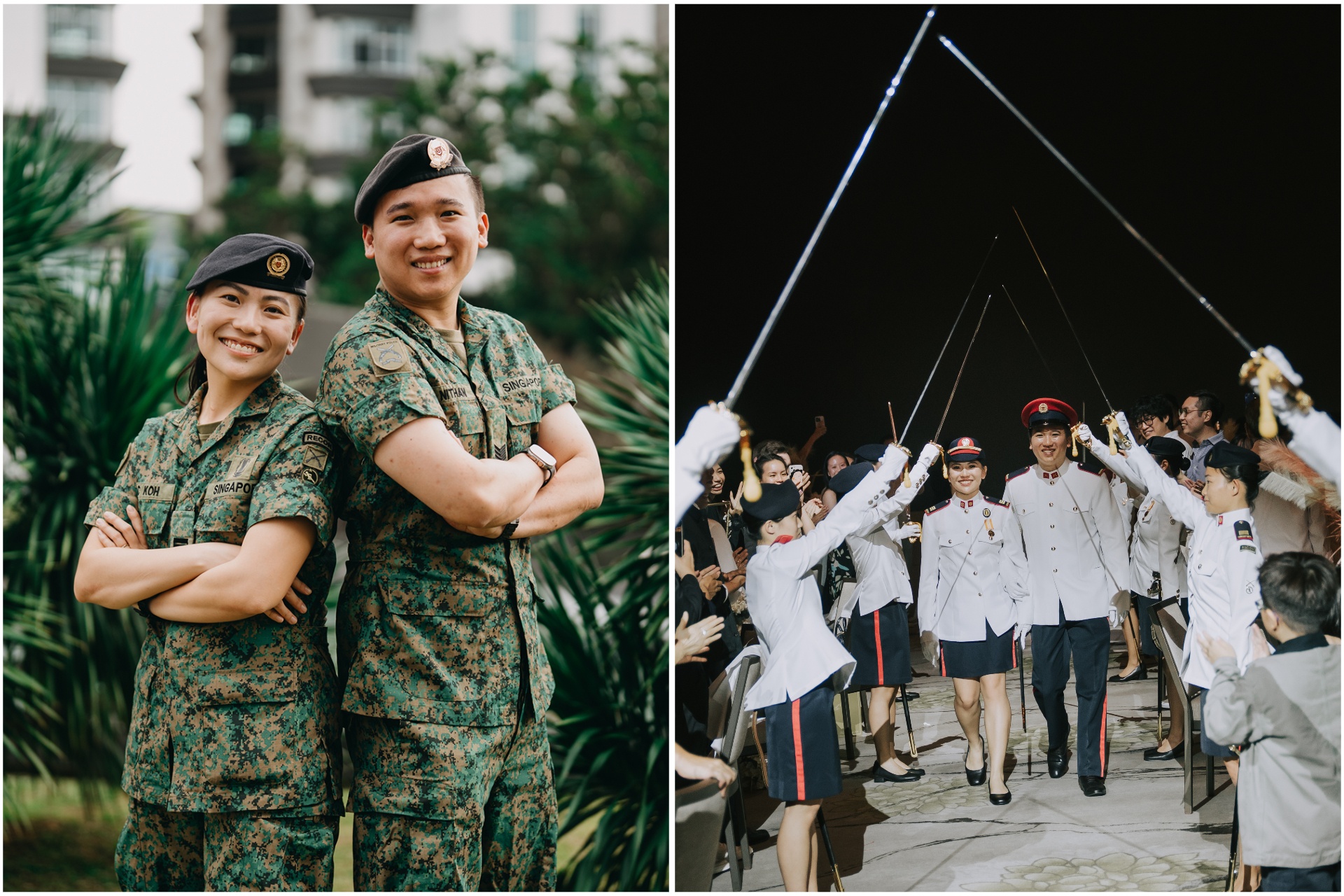
I’ve always got your back
11 Feb 2026
She’s an Army officer, and he’s the (NS)man supporting her dreams. CPT Koh Xinci and 3SG (NS) Nitro Chan share their love story with us – including their unique wedding!
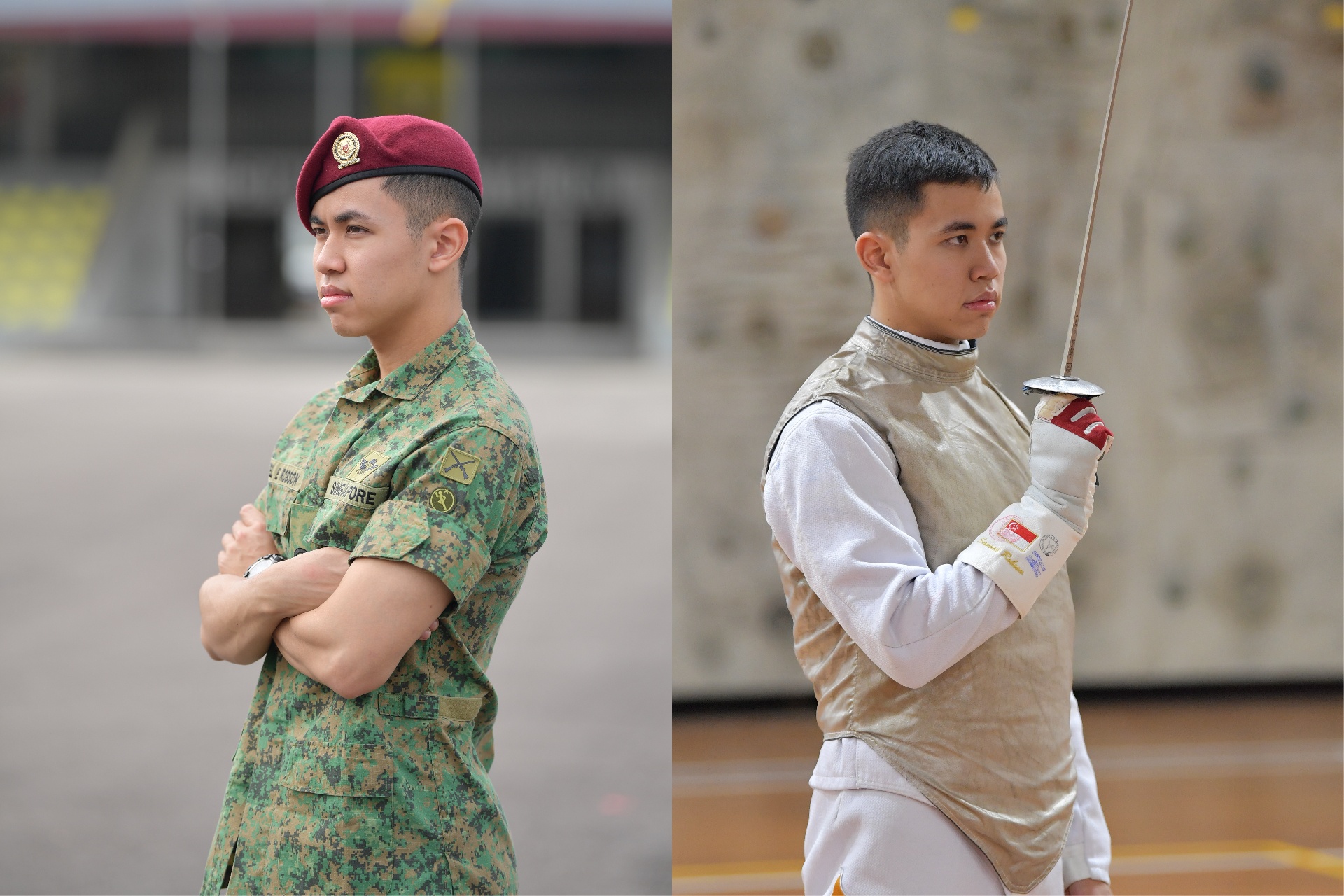
He’s an NSF Commando & medal-winning fencer
28 Jan 2026
His team won gold at the SEA Games 2025, and he hopes to represent Singapore in more competitions to come. Meet fencer CPL Samuel Elijah Robson, who is serving as a Commando during his full-time NS.


